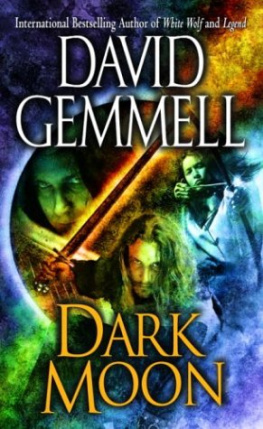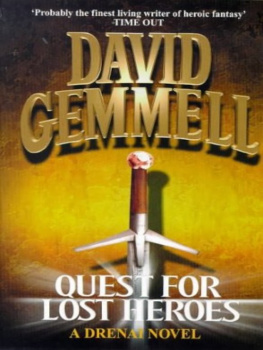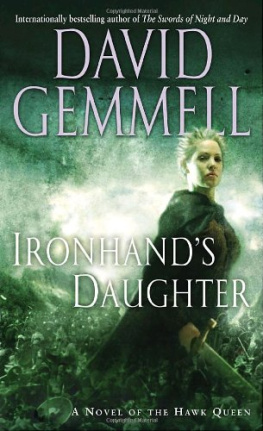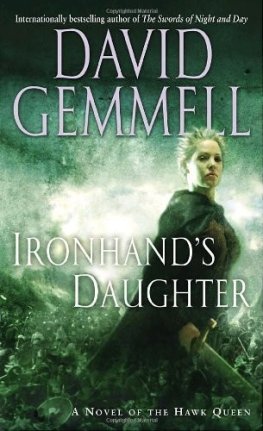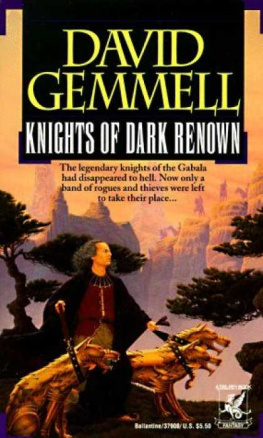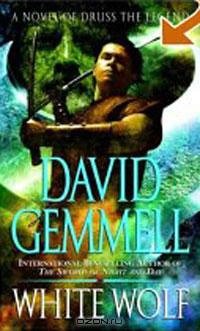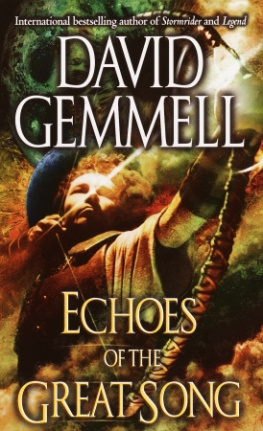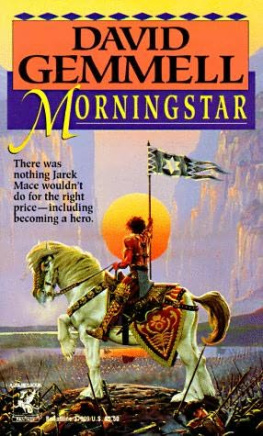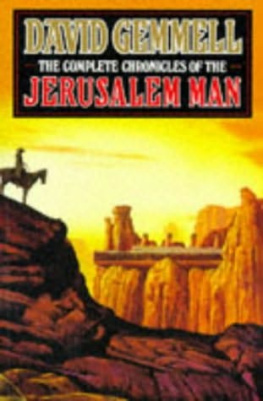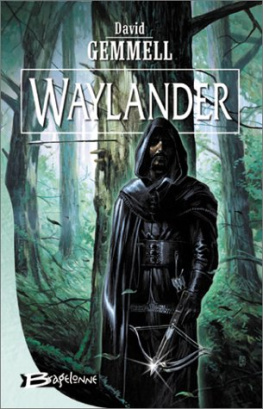David Gemmell - The Last Guardian
Here you can read online David Gemmell - The Last Guardian full text of the book (entire story) in english for free. Download pdf and epub, get meaning, cover and reviews about this ebook. year: 2004, publisher: Orbit, genre: History. Description of the work, (preface) as well as reviews are available. Best literature library LitArk.com created for fans of good reading and offers a wide selection of genres:
Romance novel
Science fiction
Adventure
Detective
Science
History
Home and family
Prose
Art
Politics
Computer
Non-fiction
Religion
Business
Children
Humor
Choose a favorite category and find really read worthwhile books. Enjoy immersion in the world of imagination, feel the emotions of the characters or learn something new for yourself, make an fascinating discovery.

- Book:The Last Guardian
- Author:
- Publisher:Orbit
- Genre:
- Year:2004
- ISBN:9781405512053
- Rating:4 / 5
- Favourites:Add to favourites
- Your mark:
- 80
- 1
- 2
- 3
- 4
- 5
The Last Guardian: summary, description and annotation
We offer to read an annotation, description, summary or preface (depends on what the author of the book "The Last Guardian" wrote himself). If you haven't found the necessary information about the book — write in the comments, we will try to find it.
The Last Guardian — read online for free the complete book (whole text) full work
Below is the text of the book, divided by pages. System saving the place of the last page read, allows you to conveniently read the book "The Last Guardian" online for free, without having to search again every time where you left off. Put a bookmark, and you can go to the page where you finished reading at any time.
Font size:
Interval:
Bookmark:
Foreward
There was no doubt in my mind about what happened to Jon Shannow when he rode into the mountains, wounded and alone. He was dying. And Jerusalem beckoned.
Yet once the novel was published reader reaction was immediate. How long to the next Shannow story? In those days reader's letters did not arrive in bulging post bags and I was able to answer all of them. The answer was simple: Thank you for your letter, and I am glad you enjoyed Jon Shannow's tale, but he is dead. There will be no more adventures.
I sent just such a response to a fan in Liverpool. He knew better and wrote back immediately. 'No he's not! No way!'
It was a real shock as if he knew something I didn't. I showed the letter to one of my test readers. Her amused response was 'Hey, maybe he's right. You don't know everything, Dave.
You're only the author.'
From that moment I started wondering about Shannow. Could there have been some miracle on the mountain?
At around the same time I received a number of reviews for Wolf In Shadow. Some were very good, some were indifferent, but one was downright vile. One of the lines in it struck me particularly. I dread to think of people who look up to men like Jon Shannow. The writer was named Broome.
Twenty years of journalism had taught me not to over-react to criticism. A writer's work is not his child. It is just work. A work of love and passion, but a work nonetheless. Even so I wanted to react in some way. All the characters in my novels are based on real people, and I thought it would be a neat response to use a character named Broome, a man passionately opposed to violence who would loathe the hero, but be drawn into his world. It was in my mind that he would be a cannon fodder character, of little conscquence, who would die early. But, as with so much in the magical world of creative writing, events did not as you will see turn out anything like I had planned.
It took only one more little nudge to push me into a second Shannow novel. I was driving home one night, listening to the radio, when the haunting lyric of a new song struck home like an arrow.
The singer was a brilliant new American artiste named Tracy Chapman, and the song spoke of racism and riots, and the appalling violence that has sadly become commonplace in the impoverished inner cities of America. One line had immense power for me
Across the lines who would dare to go
I knew who would dare.
I got home around 2 am and immediately switched on the word processor. I had no idea how to get round the obvious death of my hero in the first book, and did not wish to write a prequel. In the end I used the simplest device there is. I began with the words: But he did not die.
David A. Gemmell
Hastings, 1995
CHAPTER ONE
SOUTH OF THE PLAGUE LANDS 2341 AD
But he did not die. The flesh around the bullet wound over his hip froze as the temperature dropped to thirty below zero, and the distant spires of Jerusalem blurred and changed, becoming snow-shrouded pine. Ice had formed on his beard and his heavy black, double-shouldered topcoat glistened white in the moonlight. Shannow swayed in the saddle, trying to focus on the city he had sought for so long. But it was gone. As his horse stumbled, Shannow's right hand gripped the saddle pommel and the wound in his side flared with fresh pain.
He turned the black stallion's head, steering the beast downhill towards the valley.
Images rushed through his mind: Karitas, Ruth, Donna; the hazardous journey across the Plague Lands and the battles with the Hellborn, the monstrous ghost ship wrecked on a mountain. Guns and gunfire, war and death.
The blizzard found new life and the wind whipped freezing snow into Shannow's face. He could not see where he was heading, and his mind wandered. He knew that life was ebbing from his body with each passing second, but he had neither the strength nor the will to fight on.
He remembered the farm and his first sight of Donna, standing in the doorway with an ancient crossbow in her hands. She had mistaken Shannow for a brigand, and feared for her life and that of her son, Eric. Shannow had never blamed her for that mistake. He knew what people saw when the Jerusalem Man came riding a tall, gaunt figure in a flat-crowned leather hat, a man with cold, cold eyes that had seen too much of death and despair. Always it was the same. People would stand and stare, first at his expressionless face and then their eyes would be drawn down to his guns, the terrible weapons of the Thunder Maker.
Yet Donna Taybard had been different. She had taken Shannow to her hearth and her home and, for the first time in two weary decades, the Jerusalem Man had known happiness.
But then had come the brigands and the war-makers and finally the Hellborn. Shannow had gone against them all for the woman he loved, only to see her wed another.
Now he was alone again, dying on a frozen mountain in an uncharted wilderness. And, strangely, he did not care. The wind howled about horse and man and Shannow fell forward across the stallion's neck, lost in the siren song of the blizzard. The horse was mountain bred; he did not like the howling wind, nor the biting snow. Now he angled his way through the trees into the lee of a rock-face and followed a deer trail down to the mouth of a high lava tunnel that stretched through the ancient volcanic range. It was warmer here and the stallion plodded on, aware of the dead weight across his back. This disturbed him, for his rider was always in balance and could signal his commands with the slightest pressure or flick of the reins.
The stallion's wide nostrils flared as the smell of smoke came to him. He halted and backed up, his iron hooves clattering on the rocky floor. A dark shadow moved in front of him in panic he reared and Shannow tumbled from the saddle. A huge taloned hand caught the reins and the smell of lion filled the tunnel. The stallion tried to rear again, to lash out with iron-shod hooves, but he was held tight and a soft, deep voice whispered to him, a gentle hand stroking his neck. Calmed by the voice, he allowed himself to be led into a deep cave, where a camp-fire had been set within a circle of round flat stones. He waited calmly as he was tethered to a jutting stone at the far wall; then the figure was gone.
Outside the cave Shannow groaned and tried to roll to his belly, but he was stricken by pain and deep cold. He opened his eyes to see a hideous face looming over him. Dark hair framed the head and face and a pair of tawny eyes gazed down at him; the nose was wide and flat, the mouth a deep slash, rimmed with sharp fangs. Shannow, unable to move, could only glare at the creature.
Taloned hands moved under his body, lifting him easily, and he was carried like a child into a cave and laid gently by a fire. The creature fumbled at the ties on Shannow's coat, but the thick paw-like hands could not cope with the frozen knots. Talons hissed out to sever the leather thongs and Shannow felt his coat eased from him. Slowly, but with great care, the creature removed his frozen clothing and covered him with a warm blanket. The Jerusalem Man faded into sleep and his dreams were pain-filled.
Once more he fought the Guardian Lord, Sarento, while the Titanic sailed on a ghostly sea and the Devil Walked in Babylon. But this time Shannow could not win, and he struggled to survive as the sea poured into the stricken ship, engulfing him. He could hear the cries of drowning men, women and children, but he could not save them. He awoke sweating and tried to sit. Pain ripped at his wounded side and he groaned and sank back into his fever dreams.
* * *He was riding towards the mountains when he heard a shot; he rode to the crest of a hill and gazed down on a farmyard where three men were dragging two women from their home.
Font size:
Interval:
Bookmark:
Similar books «The Last Guardian»
Look at similar books to The Last Guardian. We have selected literature similar in name and meaning in the hope of providing readers with more options to find new, interesting, not yet read works.
Discussion, reviews of the book The Last Guardian and just readers' own opinions. Leave your comments, write what you think about the work, its meaning or the main characters. Specify what exactly you liked and what you didn't like, and why you think so.

